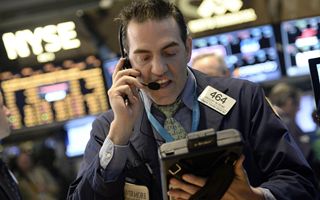(Finance) – The entrance of Kamala Harris in the election campaign in place of Joe Biden certainly has Democrats’ position improvedwho now ride the odds of winning against the former President Donald Trump. “Yes, she can” Obama said, in fact, supporting Harris’s electoral campaign. But what impact will this have on the markets? And what are the implications for the portfolio?
For Mark HaefeleChief Investment Officer of UBS Global Wealth Managementthis latest sudden change confirms that it is better avoid substantial changes to the portfolio in response to developments in the election campaign or in anticipation of a particular election result. The analyst recommends rather exploit diversification, to manage volatility spikes and broaden sources of return to avoid bias towards major risk events.
How Election Odds Change
We adjusted our latest probabilities to account for changes in voter behavior, Haefele explains, by assigning the scenario Blue Sweep (Harris with the Democratic majority in Congress) a probability of 15%and to a result in which Harris Wins But With a Divided Congress (Republican Senate, Democratic House) of 40%.
Instead, a probability of 35% to a scenario Red Sweep (Trump with a Republican majority in Congress) and a probability of 10% to a scenario where Trump Wins With a Divided Congress (Republican Senate, Democratic House).
How the impact on markets changes
In the scenario where Harris wins without a majorityit would be very difficult for the new administration to bring about the radical policy changes promised and, therefore, there would be a more limited impact on financial markets: stocks would see industrial, raw materials and renewable energy sectors advance, while the impact would be minimum on growth prospects, inflation, monetary policy and on the dollar.
The Blue Sweep scenario (Harris with the majority in Congress) would probably be the more negative result for the stock markets, mainly due to a greater likelihood of a corporate tax hike. Interest rates would likely fall, reflecting lower inflation and growth, and there would be further Fed cutsThe scenario would instead be negative for the dollar.
Better to maintain a well-diversified portfolio
“This latest shift in electoral preferences – comments the analyst of UBS Global Wealth Management – underlines our previous indication that points to avoid radical portfolio changes in response to developments in the election campaign. We continue to support diversification of the portfolio to mitigate increased volatility, to broaden sources of return and to avoid behavioral biases”.
“We expect it S&P 500 to hit 5,900 by December 2024with strong earnings growth of close to 11% this year and 8% in 2025. – concludes the expert – We remain constructive on gold in a context of geopolitical tensions, a growing US fiscal deficit and impending rate cuts by the Fed. We also recommend reviewing and address portfolio overexposure to sectors, currencies and countries sensitive to elections. The alternative assets can also help diversify portfolios, with the hedge funds which offer low correlation with traditional asset classes and the private equity which highlights a lower exposure to growth volatility in favor of smaller companies.”
